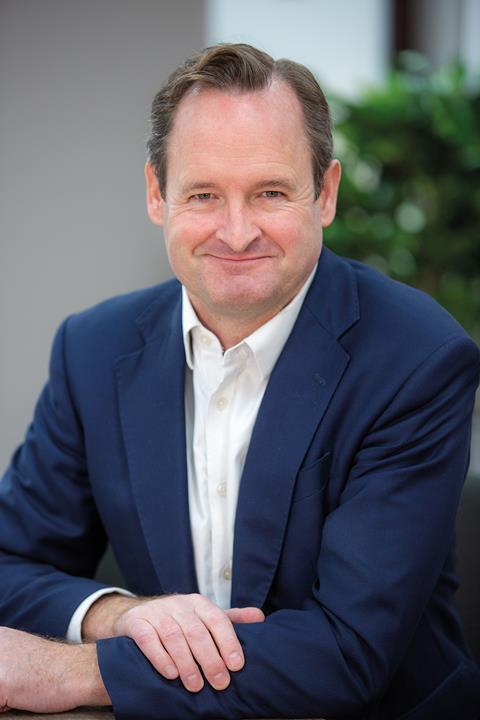Corporate finance partner and head of the Shrewsbury office
I come from a military family and originally hoped to join the Royal Engineers. So I chose to study engineering at Exeter University. Not long after, I joined the Territorial Army (the Shropshire Yeomanry). Looking back, I see my years of service as incredibly valuable and rewarding. However, it is important to note that then my life was significantly different as my deafness had not manifested itself.

In 1992, I got an opportunity to spend time with Aaron & Partners as part of my work experience. Despite shifting away from my initial career goals, I realised that law was something I really wanted to do.
At that time, both of my parents were working in Chester. As a young person seeking freedom and independence, I decided to go my own way and started to work for a legal firm based in the East Midlands. After Aaron & Partners announced the opening of a Shrewsbury office in 2013, however, I got in touch with the team and returned to my Shropshire homeland.
For me, choosing a legal career also meant choosing a profession that would be compatible with my hearing loss. Hereditary deafness has run in our family through generations and affected my grandparents, uncles, aunts, cousins, as well as my 22-year-old daughter.
Alongside hearing loss, I suffer from tinnitus, which is an ever-present low hum in my left ear. Although it is more noticeable when I think about it, tinnitus is also exacerbated by certain factors, such as stress, lack of sleep and too much caffeine – all too common in a busy, modern legal life!
As much as I wish this was an outdated bias, some people might still think that being deaf equals being stupid. This is mainly because people suffering from hearing loss have a decreased ability to engage in conversations and interact with their surrounding world. This is probably the reason why many affected people, including me in the early years of my career, try to hide their disability and are ashamed to talk about it.
'Having the visual element when speaking to someone makes a big difference for people suffering from hearing loss. Digital platforms are constantly improving'
However, after living with deafness for so many years, I learned to be more open about it. My personal as well as professional life have become so much easier. In simple terms, sharing my experience and needs helped other people to understand me better.
Two factors made a big difference in my working life: the development of technology and the changes resulting from the Covid pandemic. Being a lawyer means constantly interacting with colleagues, clients and other professionals, and wearing a hearing aid helps me communicate more easily and efficiently. However, the shift to online calls and meetings on the back of the pandemic has been transformational for me; having the visual element when speaking to someone makes a big difference for people suffering from hearing loss. Those digital platforms are constantly improving their functionality and adding extra features, such as subtitles, which I find incredibly helpful.
My profound deafness is something I did not like to talk about in the past. But that significantly changed after, in 2013, I started my collaboration with RNID – the UK’s national hearing loss charity. It may sound unbelievable, but nearly 20% of the global population suffer from some kind of hearing loss and could benefit from a hearing aid. But how many people actually decide to take action and seek professional help? One of the main goals of RNID is to spread awareness of hearing loss disability and encourage people to share their stories. Thanks to my involvement with the charity, I also got a chance to meet some of the best scientists in the world and discuss the possibilities of hearing loss treatments.
With Community Resource – an independent charity based in Shropshire – we work with people based in rural counties, where population density is low and so is the availability of essential services. Covering Telford and Wrekin, we engage with elderly people and support them to stay active and connected to their local community. As a chairman of the charity, I also lead the focus on people suffering from hearing loss, assisting them when using a hearing aid. By being more vocal about the condition, we can create a more inclusive environment for people.































No comments yet